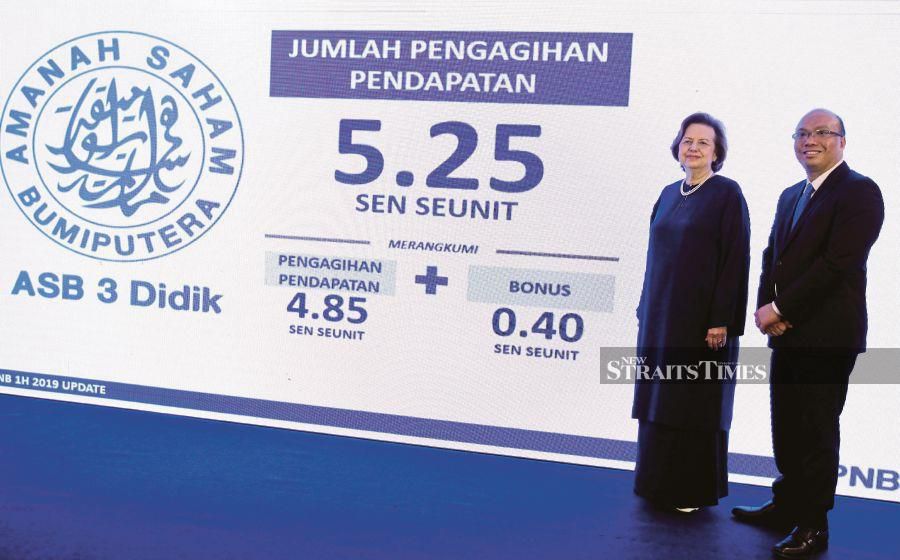PNB insulates its investments to weather short-term volatility: Zeti

KUALA LUMPUR: Permodalan Nasional Bhd (PNB) will insulate its investments by diversifying into various asset classes to weather the anticipated short-term volatility in the domestic market.
Group chairman Tan Sri Dr Zeti Akhtar Aziz said PNB’s portfolio allocation into fixed income securities and global assets had risen to 7.4 per cent and 4.9 per cent respectively as at end of May this year, from 5.8 per cent and 2.4 per cent in 2017.
President and group chief executive officer Datuk Abdul Rahman Ahmad said the bulk of its global asset was currently on global public equity markets, which are listed shares.
It constituted about 3.4 per cent out of our 4.9 per cent of the global asset, he added.
Abdul Rahman said PNB would also rebalance its real estate investment portfolio with the potential of monetising some of its landbank in Malaysia, allowing it to reinvest into a different profile of assest.
“Currently our real estate portfolio is about RM8 billion, comprising domestic completed investment properties and 9,000-acre of landbank as well as our real estate particularly in London,” he said at a press conference on PNB’s first-half financial performance here yesterday.
“The land is directly owned by PNB – and we don’t intend to become a property developer. It is a good asset class as overtime the land appreciates and when it matures, the plan is to monetise and divest to property developers,” he added.
PNB said construction of its 118-floor skyscraper Merdeka PNB 118 was expected to hit between 88th and 90th floors by end of the year from the current progress at 75th floor.
Meanwhile, Zeti said Malaysia has the “resilience” to absorb any volatility as the size of the capital market was significant with flexible exchange rates.
“Our economy adjusts to this (volatility). Our corporate sector also shows greater activities and this will bring in more capital inflows. Generally, this outflow is not unique to Malaysia,” she added.
Zeti said the world recognised that Asian and Southeast Asia in particular as the growth sector of the global economy, and eventually funds would gravitate back to the market.
“We are beginning to see many things happening in our economy that will prompt economic activities – that will be factor that draws in and influence investors,” she added.
In spite of the capital outflow, Zeti said institutional investors like PNB contributed to stabilising the local equity market.
“Although we are affected, I do not see this as a significant volatility in relative terms. We take steps to diversify and better manage our liquidity. Now we look for buying opportunities and we are not passive.
“We also exercise our growth in both strategic and core companies to enhance their capabilities and capacities. We have seen some of them improved their performance,” she said.
Zeti said PNB had conducted a series of engagements with holding companies to improve their governance and leadership in light of more digitalised operating environment.
PNB’s mid-term review of its strategic plan was also progressing well on the three key areas namely: strategic asset allocation and optimal liquidity management, enterprise risk management and organisational transformation.
The execution of the review is crucial to PNB’s plan to continue delivering sustainable returns over the medium and longer term.
Abdul Rahman said volatility provides opportunity for the fund manager to buy when the market was “slow” and to monetise its investments when the market was high.
“This allows us to pay dividends. However, the key to longer term performance must be the underline performance of the companies.
“Although the current domestic market is weak, the key is how to enhance the earnings performance of our underline companies,” he said, adding that PNB had been affected due to lower commodity prices as well as the challenges in the property market this year.
By Ayisy Yusof - June 24, 2019 @ 9:41pm
